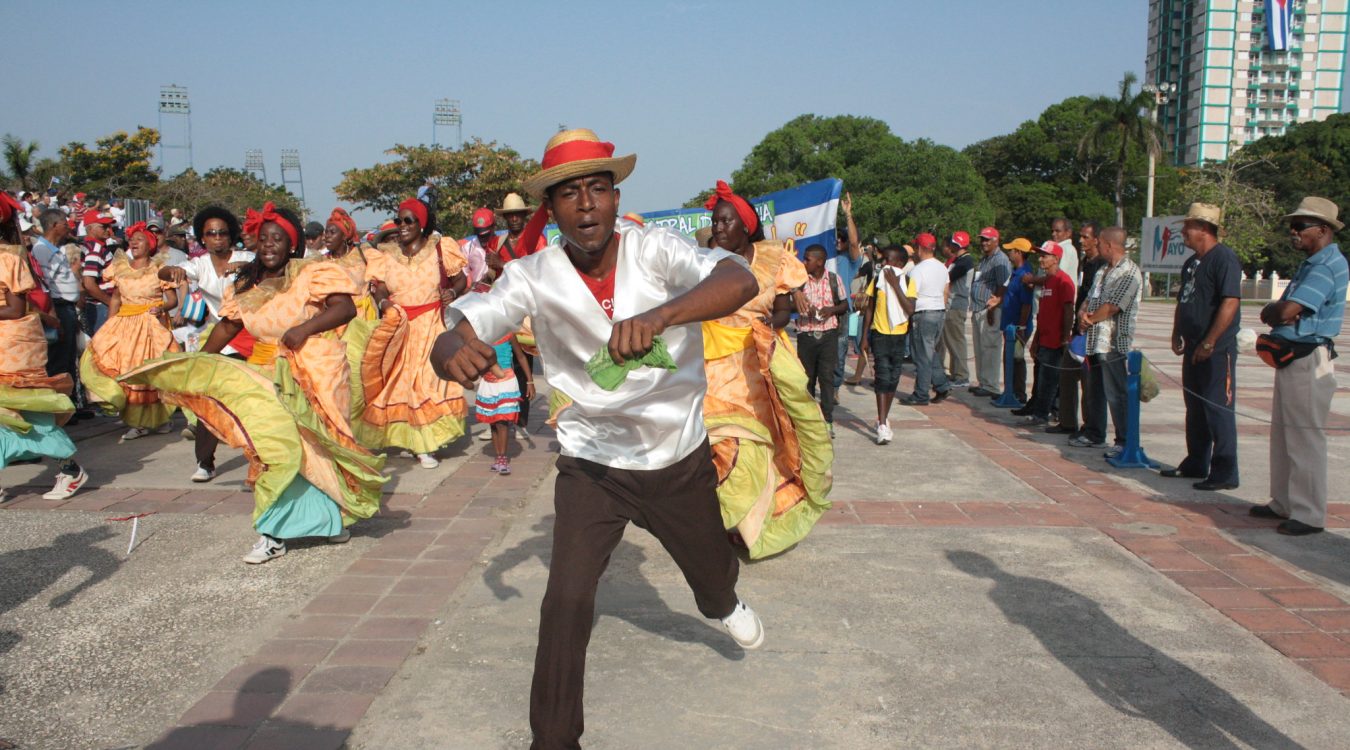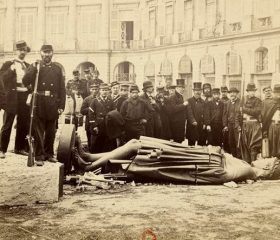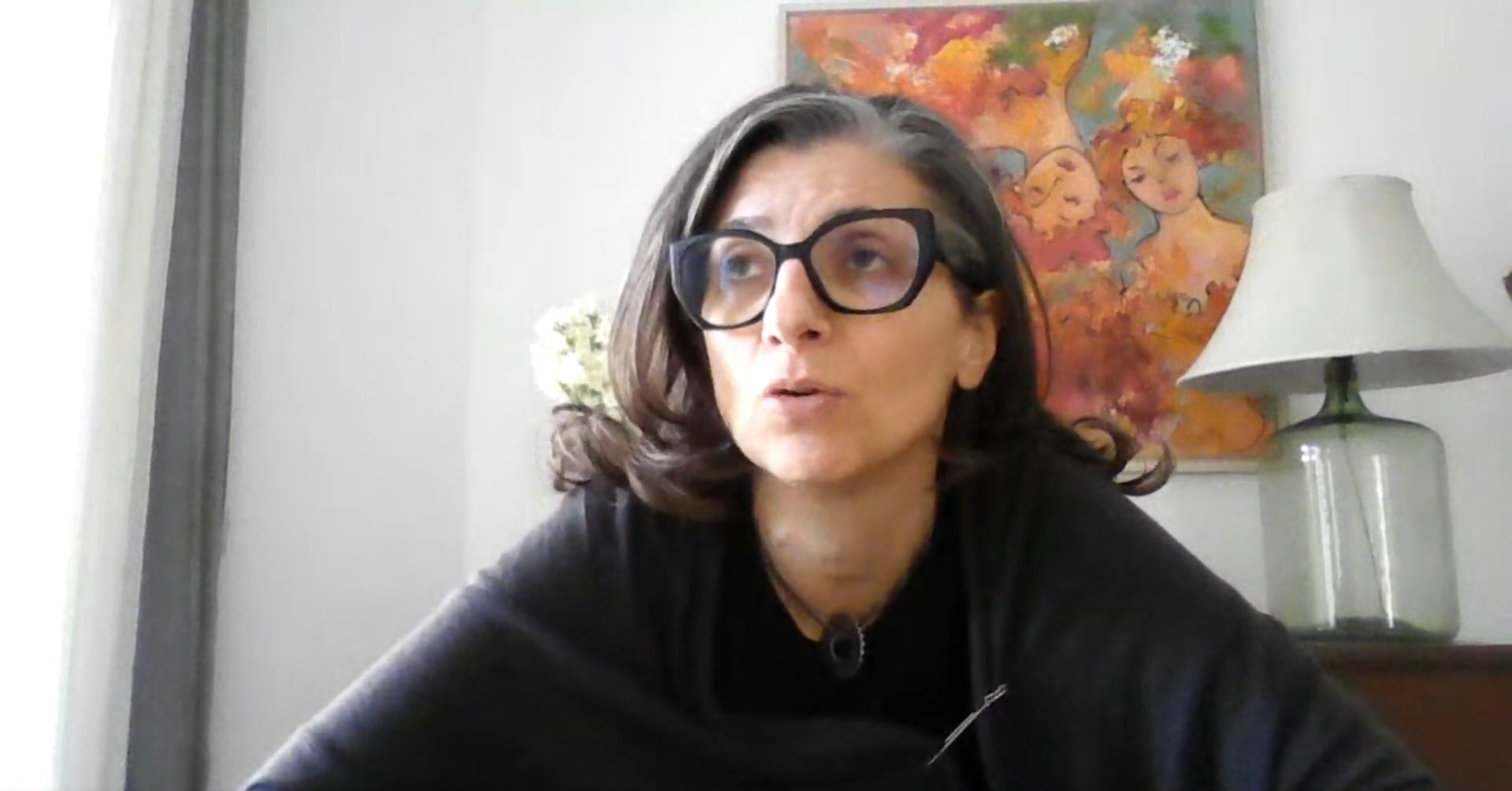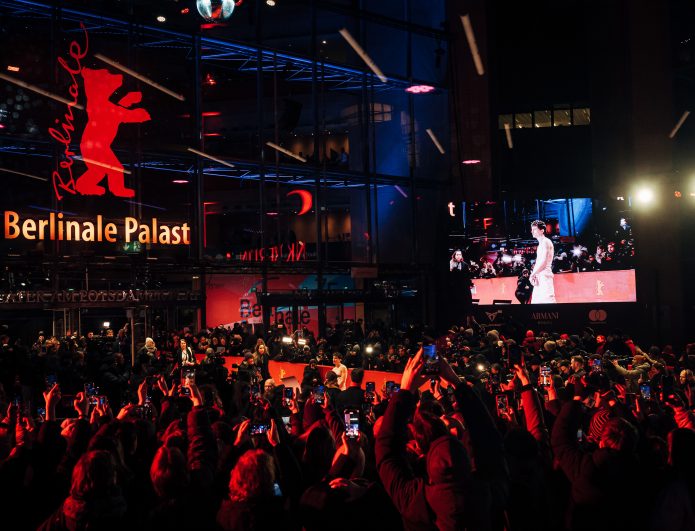Denne artikel blev først publiceret på kenworthy news.
Den politiske aktivist Emma Goldman er citeret for at sige, at ”hvis man ikke må danse, er det ikke min revolution”. Ord og sætninger rammer i højere grad vores følelser, hvis de er sat til musik, og en hel del musik er skrevet fra en mere eller mindre oprørsk synsvinkel. Men kan musikken stadig for alvor rykke ved noget?
”Så længe jeg kan fortælle om min oplevelser med ord, ville jeg bestemt ikke lave musik om den”, er den senromantiske klassiske komponist Gustav Mahler citeret for at have skrevet.
Alt for mange musikere tror fejlagtigt, at deres musik på en eller anden måde taler for sig selv.
Boff Whalley, bandmedlem, Chumbawamba
Og musik har for det meste ikke noget præcist program. Det er teksterne for korte og sporadiske, og musikkens tilhørende stemning for upræcis til.
Forskellig slags musik har dog både afspejlet og kritiseret den tid, musikken blev skabt i. Og musikken har været brugt til at samle, protestere og kræve social forandring i alt fra 1600-tallets England, apartheid-Sydafrika og tressernes USA, til halvfemsernes Australien og nutidens Rusland og Vestsahara.
Musik har derfor været forbudt eller mere eller mindre censureret i lande fra Iran, Afghanistan, Kina og Cambodia til USA, Sydafrika og Storbritannien.
Musikken kan nemlig være med til at tænde en glød, være et mere eller mindre artikuleret råb om opposition, en følelse og en vrede over tingenes tilstand til det bestående. Ikke mindst fordi musikere ofte bliver lyttet til meget mere end nyhedsmedier og politikere.
Også selv om musik er ”et godt sted at have idealer, men ikke et godt sted at udleve dem”, som folkrock/anarcho-punk-bandet The Levellers bassist Jeremy Cunningham siger i biografien ”Levellers – Dance Before The Storm”.
Kystbanesocialisme eller trojansk hest?
Der er blevet skrevet politisk musik til alle tider. Bare lyt til Gerrard Winstanleys Digger’s Song, der krævede jordrettigheder i 1600-tallets England og var med til at inspirere de russiske marxister. Eller Kurt Weills ”The Threepenny Opera”, hvor Berthold Brecht leverer en kras kritik af kapitalismen.
Indtil 1950’ernes ungdomsoprør havde unge mennesker dog ofte været fanget i forældregenerationens stereotype verdensbillede, men nu forsøgte de at gøre oprør – og her spillede musik en ofte symbolsk, men vigtig rolle.
Men det er svært ikke at ”sælge ud” i en moderne, kommercialiseret musikverden. Og 60’ernes rockprægede modkultur blev kompromitteret og solgt i det øjeblik, den blev skabt, skriver den engelske musikjournalist Peter Doggett i sin bog om sentressernes og starthalvfjerdsernes rock og modkultur, ”There’s a Riot Going On”.
”Igen og igen troede musikere, at de slog et slag for befrielse og revolution. Og igen og igen blev alle deres skridt inddæmmet af den industri, som de brugte til at bekendtgøre deres oprør […] Så snart de revolutionære tilknyttes (det amerikanske pladeselskab, red.) Columbia Records, er de ikke længere revolutionære”, tilføjede Doggett.
Den samme fælde er mange musikere mere eller mindre frivilligt faldet i sidenhen.
Men som en anden engelsk musikjournalist, Jon Savage, skriver i ”The Secret Public – How LGBT Performers Shaped Popular Culture (1955-1979)”, kan musik og kultur alligevel være med til at sætte dem fri, der ikke accepterer de normer, som den dominerende kultur pålægger dem.
”Kunst og kultur var langt foran advokater, politikere og de fleste journalister; filmene, reklamerne, litteraturen, den billedkunst og popmusikken på den tid fungerede som en trojansk hest, der udsendte mere progressive ideer, lyde og billeder”, pointerer Savage i sin bog.
Er stafetten gået i stå?
Musik er på denne måde en slags stafet, hvor den ene generation bygger ovenpå, og overlader scenen til den næste. Hvad den postmoderne russiske komponist Alfred Schnittke kaldte at være ”et led i den historiske kæde”.
Og hvor det ofte unge publikum og unge musikere bliver en central del af udviklingen af kulturens nye idéer.
”Ungdommen har altid ret, det er løberen, der samler stafetten op, der har brug for den, ikke den der afleverer den til ham”, pointerer Joy Division/New Orders Bernard Sumner i hans selvbiografi, ”Chapter And Verse”.
Men hvad er slagkraftig politisk musik så i 2020’erne? Har internettets og de sociale mediers algoritmer, fart og fragmentering samt den stigende kommercialisering og spotificering af den nutidige (rytmiske) musikverden inddæmmet musikkens kulturelle rebelske potentiale (såvel som dens sjæl)? Og passer meget af nutidens mere eller mindre forudsigelige materialistiske og eskapistiske populærmusik måske i virkeligheden bedre til reklamer og mainstreampolitikeres kampagne-playlister?
En af de nyere musikhistories rebeller, John Lydon (også kendt som Johnny Rotten fra punkbandet Sex Pistols), skrev i hvert fald i sin selvbiografi, ”Rotten – No Irish, No Blacks, No Dogs” (oprindeligt udgivet tilbage i 1994), at han sandsynligvis slet ikke ville være interesseret i musik, hvis han var ung i dag.
Men Chumbawambas Boff Whalley – som selv oprindeligt var inspireret af punkens kraft, gør det selv-ånd og budskaber – mener alligevel, at musikken stadig kan og skal forsøge at levere vigtige budskaber.
”Alt for mange musikere tror fejlagtigt, at deres musik på en eller anden måde taler for sig selv, at den eksisterer i en boble, afskåret fra den verden den er en del af. Men musik har – ligesom enhver anden kunstform – brug for et formål og en relevans, før den kan indlejre sig i tiden, samfundet og kulturen”, siger han i selvbiografien ”Footnote”.
Og der er nutidige kunstnere, der stadig holder den politiske musikkultur i live, i en tid hvor der måske mere end nogensinde er brug for kritik af det bestående.
Kulturkamp
Kultur skal ses som en dimension af al social handling, inklusive den økonomiske og politiske, skrev den britiske sociolog Peter Worsley i ”Culture And Global Change”.
Det virker dog til at være højrefløjen, der for tiden har mest succes med at bruge kultur og kampen mod det etablerede system som et populistisk politisk virkemiddel.
Se bare på Trump-regeringens negative politisering af litteratur, universiteter, indvandring, klima og LGBT-mennesker. Samt Donald Trumps tendens til ofte at spille musik til sine politiske møder.
Hans brug af deres musik er dog ofte mod kunstnere eller deres familiers vilje. Og andre kunstnere har på samme vis protesteret mod at blive brugt til at fremme antiprogressive meninger og politikere, som de er uenige med.
The Smiths’ Johnny Marr forbød engang den britiske premierminister David Cameron at kunne lide eller lytte til hans musik. ”Jeg mente, at hvis du lavede alternativ musik, var du per definition antihøjreorienteret”, skrev Marr i sin selvbiografi.
På samme vis opfordrede Kurt Cobain homofobiske, racistiske og kvindehadende fans af hans band til ikke at komme til Nirvanas koncerter eller købe deres plader.
Denne kamp om kulturen handler om noget grundlæggende. For kultur er rammesættende, har ofte tilsyneladende universalistiske elementer og forsøger at give svar på meningen med vores liv og samfund – men er samtidig omskiftelig, porøs og en bredtfavnende kampplads.
Og så er det ikke nok bare at kopiere en regelbaseret subkulturs tøjstil eller lytte til tilsyneladende alternativ rebelsk musik, hvis man vil ændre samfundets rammer.
Ret til at fortælle vores historier
Det kræver i sidste ende også konkret opposition og handling, hvis man vil forandre noget i den virkelige verden. Ord er i sidste ende kun ord, og budskaber kan misfortolkes, fordrejes og misbruges.
Og som Naomi Klein pointerer i ”Dobbelganger”, kan ord, der er skrevet på et stykke papir eller i protest, ende med kun at ændre, hvad folk eller institutioner siger, ikke hvad de gør.
Flere musikere har desuden udtrykt deres forbehold over for politisk musik. Blandt andet The Cures Robert Smith, som i 2011 fortalte The Guardian, at han altid har følt et let ubehag ved politiserende musikere.
”Meget få af dem er kloge nok til at gøre det. Hvis de er gode til den politiske del, lider den musikalske og omvendt”, tilføjede Smith.
”Musik er i sagens natur ude af stand til at udtrykke noget som helst”, har avantgarde-komponisten Igor Stravinsky desuden sagt. En måske lidt overraskende udtalelse fra manden, der komponerede Le sacre du printemps – et værk der førte til råben, buen og optøjer, da det blev opført første gang i Paris i 1913.
Men trods alt fortsætter dygtige og velmenende protestsangere med at bruge musikkens kraft til at udtrykke såvel et personligt som et politisk budskab. Ikke mindst i de dele af verden hvor protest er mere en nødvendighed end en karrierebeslutning.
”Jeg er ikke naiv. Jeg ved, at en sang ikke kan ændre verden, men jeg ved, at kunst bliver brugt til at udtrykke social og politisk kritik. Jeg har brug for at synge om mine personlige forhold, og det er i sig selv politisk. Min familie og jeg er flygtninge, ligesom mere end 100 millioner andre flygtninge og fordrevne mennesker rundt omkring i verden. Vi har ret til at lave kunst og fortælle vores historier”, som sangeren Aziza Brahim fra Vestsahara udtrykte det i et interview sidste år.
Jeg har nedenfor forsøgt at lave en mere eller mindre omfattende og alsidig – men også subjektiv og geografisk skæv – politisk playliste, hvor kunstnerne har haft noget på hjerte, protesterer for eller imod noget og/eller har været med til at ændre indgroede, forstokkede vaner og holdninger til det bedre:
Alfred Schnittke: Nagasaki (1958), Concerto Grosso No. 1 (1977).
Andyboi: Emhlabeni (2014), ”I wish we were all united, We’ve stopped fighting” (oversat fra Zulu).
Anne Linnet: Tro for to (2022), ”Jeg er fanget i mit indre, fanget i min krop, og der er ikke noget at gøre, tiden går”.
Azíza Brahmím: Lagi (2013), ”Ever since I arrived in this world, I have lived as a refugee, Despite moving to the North, I have remained a refugee”. Gdeim Izik (2013). ”I witnessed the horror and the torture, that the voices accuse you of, I saw the young victims, In your prisons of death, Proof of this, are the events of Gdeim Izik” (begge sange oversat fra Hassaniya).
Bikini Kill: Rebel Girl (1993), ”When she walks, the revolution’s comin’, In her hips, there’s revolution, When she talks, I hear the revolution, In her kiss, I taste the revolution”.
Billy Bragg: Which Side Are You On (1984), ”This government had an idea, And parliament made it law, It seems like it’s illegal, To fight for the union anymore”. Thatcherites (1996), ”You privatise away and then you make us pay, We’ll take it back some day, mark my words”. Full English Brexit (2017), ”But it’s alright, alright, I think I’ve found a remedy, Yes, it’s alright, gonna be alright, It’s a full English Brexit for me”.
Billie Holliday: Strange Fruit (1937). ”Southern trees bear a strange fruit, Blood on the leaves and blood at the root, Black bodies swinging in the Southern breeze, Strange fruit hanging from the poplar trees”.
Bob Dylan: The Times They Are A-Changin’ (1964). ”For the loser now, Will be later to win, For the times they are a-changin’”.
Bob Marley: War/No More Trouble (1977), ”And until there’s no longer, First class and second class citizens of any nation, Until the color of a man’s skin, Is of no more significance, Than the colors of his eyes, I’ve got to say war”.
Bronski Beat: Why? (1984), ”You, in your false securities, tear up my life, condemning me, Name me an illness, call me a sin, never feel guilty, never give in”.
Bruce Springsteen: Downbound Train (1984), ”Now, I work down at the car wash, Where all it ever does is rain, Don’t you feel like you’re a rider, On a downbound train?”
Chumbawamba: The Day The Nazi Died (1993), ”So if you meet with these historians, I’ll tell you what to say, Tell them that the Nazis never really went away, They’re out there burning houses down and peddling racist lies, And we’ll never rest again until every Nazi dies”. Enough Is Enough (1994), ”Open your eyes, Time to wake up, Enough is enough”. When Fine Society Sits Down To Dine (2004), ”There are those paying fancy prices, To pretend they have fancy lives, But at every charity banquet, The majority stay outside”. Bella Ciao (2005), ”And I will tell them – we will tell them, Bella ciao, bella ciao, bella ciao ciao ciao, That our sunlight is not for franchise, And wish the bastards drop down dead”.
CV Jørgensen: Costa Del Sol (1980), ”For øjeblikket har vi det herligt, Her på Costa del Sol, I vort ny-nazistiske og asociale sammenhold, Men den dag røderusserne kommer, Og det gør de jo nok igen, Har jeg solgt min hacienda og købt en ny i Californien”.
David Bowie: John, I’m Only Dancing (1972), ”John, I’m only dancing, She turns me on, but I’m only dancing, She turns me on, don’t get me wrong, I’m only dancing”.
Edwin Starr: War (1970), ”War, What is it good for? Absolutely nothing”.
Enoch Sontonga: Nkosi Sikelel’ iAfrika (1897), ”Lord bless Africa, May her glory be lifted high, Hear our petitions, Lord bless us, your children” (oversat fra Xhosa og Zulu).
Ethel Smyth: March of the Women (1910), ”Shout, shout, up with your song, Cry with the wind, for the dawn is breaking, March, march, swing you along, Wide blows our banner, and hope is waking”.
Frankie Goes To Hollywood: Two Tribes (Annihilation) (1984), ”Are we living in a land, Where sex and horror are the new Gods?, When two tribes go to war, A point is all you can score”.
Gerrard Winstanley, Digger’s Song (1649), ”Your houses they pull down to fright your men in town, But the gentry must come down, and the poor shall wear the crown, Stand up now, Diggers all”.
Grandmaster Flash: The Message (1982), ”Don’t push me cause I’m close to the edge, I’m trying not to lose my head, It’s like a jungle sometimes, It makes me wonder how I keep from goin’ under”.
Iron Maiden: Run to the Hills (1982), ”White man came across the sea, He brought us pain and misery, He killed our tribes, he killed our creed, He took our game for his own need”.
Johnny Cash: What Is Truth (1970), ”The ones that you’re calling wild, are going to be the leaders in a little while, This old world’s waking to a new born day”.
Kate Bush: Breathing (1980), ”We’ve lost our chance, We’re the first and last, After the blast, Chips of plutonium are twinkling in every lung”. Army Dreamers (1980), ”Should have been a father, But he never even made it to his twenties, What a waste, Army dreamers”.
Kenneth Kaunda, Tiyende Pamodzi (1960s), ”Let us walk together with one heart” (oversat fra Njanja).
Kraftwerk: Radioactivity (Francois Kervorklan 12” Remix) (1991); ”Stop Radioactivity, Is in the air for you and me”.
Laurie Anderson: O Superman (1982), ”Cause when love is gone, there’s always justice, And when justice is gone, there’s always force, And when force is gone, there’s always Mom”. Only an Expert (2010), ”And even though a county can invade another country, And flatten it, And ruin it, And create havoc and civil war in that other country, If the experts say that it’s not a problem, And everyone agrees that they’re experts good at seeing problems, Then invading that country is simply not a problem”.
Leadbelly: The Bourgeois Blues (1939), ”I heard a white man sayin’, ’I don’t want no n****** up there’, Lord, he’s a bourgeois man, Yee, it’s a bourgeois town, I got the bourgeois blues, Gonna spread the news all around”.
Miriam Makaba: Soweto Blues (1989), ”The children got a letter from the master, It said: no more Xhosa, Sotho, no more Zulu, Refusing to comply they sent an answer”.
National Wake: International News (1979), ”They put a blanket over Soweto, They put a blanket, nowhere to go, no, They put a blanket over the news, They put a blanket, nothing to choose”.
Nina Hagen and Lene Lovich: Don’t Kill the Animals (1986), ”Life is for living, The animals agree, If they were meant to be eaten, They’d be growing on trees”.
Nirvana: Smells Like Teen Spirit (1991), ”I found it hard, it’s hard to find, Oh well, whatever, never mind”.
Pet Shop Boys: Shopping (1987), ”Our gain is your loss, That’s the price you pay, I heard it in the House of Commons, Everything’s for sale, We’re shopping”.
Peter Gabriel: Biko (1980), ”You can blow out a candle, But you can’t blow out a fire, Once the flames begin to catch, The wind will blow it higher”.
Petrol Girls: System (2016), ”Is this what democracy looks like?, Challenge but you’ll never win the fight, Know the moment you question their right, They will try to drag you out of sight”.
Philip Glass: Satyagraha (1980), ”Whenever a decrease of righteousness, Exists, Descendant of Bharata, And there is a rising up of unrighteousness, Then I give forth myself, For the protection of the good, And the destruction of evil doers, For the sake of establishing righteousness, I come into being from age to age” (oversat fra Sanskrit).
Pink Floyd: Another Brick In the Wall part 2 (1979), ”We don’t need no education, We don’t need no thought control, No dark sarcasm in the classroom, Teacher, leave them kids alone”.
Pixies: Monkey Gone To Heaven (1989), ”The creature in the sky, Got sucked in a hole, now there’s a hole in the sky, And the ground’s not cold, And if the ground’s not cold, everything is gonna burn, We’ll all take turns, I’ll get mine too”.
Plasmatics: Masterplan(1981), ”Masterplan, It makes you feel so sure, Masterplan macho man masterplan, It makes you feel so virile, Masterplan delivery man masterplan, You’d like to rule the world, Masterplan, You like controlling minds”.
Prophets Of Rage: Unfuck The World (2017), ”Poverty hit home like a war zone, Check America’s pulse, heard a death tone, Division hitting like a bullet to precision, Kill the dream, kill the vision, now listen, What the fuck are you waiting for?”.
Pussy Riot: Bad Girls (2018), ”Good girls working at the banks, Bad girls blowing up the tanks, Good girls pray to a man with a beard, But god is a woman and she’s tough and she’s queer”.
Rage Against The Machine: Killing In The Name (1992), ”Some of those that work forces, Are the same that burn crosses, Killing in the name of, And now you do what they told ya, Those who died are justified, For wearing the badge, They’re the chosen whites”.
Rammstein: Amerika (2004), ”We’re all living in Amerika, Coca-Cola, Wonderbra”.
Sex Pistols: God Save The Queen (1977), “When there’s no future, how can there be sin? We’re the flowers in the dustbin, We’re the poison in your human machine, We’re the future, your future”. Anarchy In The UK (1977), ”Your future dreaming’s a shopping scheme”.
Siouxsie and the Banshees: Arabian Knights (1981), ”I heard a rumour, It was just a rumour, I heard a rumour, What have you done to her?, Myriad lights, They said I’d be impressed, Arabian Knights, At your primitive best”. Swimming Horses (1984), ”Kinder with poison, Then pushed down the well, Or a face burnt to hell, Feel the cruel stones, Breaking her bones”.
Steppeulvene: Kun for forrykte (1967), ”Han kastede altid det bort, Som i alverdens øjne var hans fordel, For at bevare sin frihed”.
Sonic Youth: Youth Against Fascism (1992), ”Another nazi attack, skinhead is cracked, My blood is black, it’s the song I hate, it’s the song I hate”.
Steel Pulse: Ku Klux Klan (1978), ”Black man, do unto the Klan as they would do to you, In this case, hate thy neighbour, Those cowards only kill who they fear, That’s why they hide behind the hoods and cloaks they wear”.
The Clash: I’m So Bored With The USA (1977), ”Yankee dollar talk, To the dictators of the world, In fact it’s giving orders, And they can’t afford to miss a word”. The Guns of Brixton (1979), ”When they kick at your front door, How you gonna come?, With your hands on your head, Or on the trigger of your gun?, When the law break in, How you gonna go?, Shot down on the pavement, Or waiting in death row?”.
The Cranberries, Zombie (1994), ”It’s the same old theme, since 1916, In your head, in your head, they’re still fighting, With their tanks and their bombs and their bombs and their guns, In your head, in your head, they are dying”.
The Levellers: Sell Out (1991), ”The year is 1991, it seems that freedom’s dead and gone, The power of the rich is held by few, Keep the young ones paralyzed, educated by your lies, Keep the old ones happy with the news, Tell the singer not to sing his song, Tell the poet that she’s wrong, And in the courts you’ll win the case with lies, Cos you sold them down the river-o”. Exodos (1995), ”It’s simple, because it is the people, Fighting for and claiming what remains, And dreaming, this is not dreaming, This is the exodus from the game”. Chemically Free (1997), ”I believe you, We believe you, You should have told us that you never meant a word that you said”.
The Pogues: Streets of Sorrow/Birmingham Six(1988), ”There were six men in Birmingham, In Guildford there’s four, That were picked up and tortured, And framed by the law, And the filth got promotion, But they’re still doing time, For being Irish in the wrong place and at the wrong time”. The Wake of the Medusa (1990), ”The architects of our doom around their tables sit, And in their thrones of power, condemn those they’ve cast adrift, Echoes down the city street, their harpy’s laughter rings, Waiting for the curtain call, oblivious in the wings”.
The Slits: Typical Girls (1979), ”Don’t create, Don’t rebel, Have intuition, Can’t decide, Typical girls get upset too quickly”.
The Smiths: Meat Is Murder (1985), ”Heifer whines could be human cries, Closer comes the screaming knife, This beautiful creature must die, This beautiful creature must die, A death for no reason, And death for no reason is murder”. The Queen Is Dead (1986), ”Her very lowness with her head in a sling, I’m truly sorry, but it sounds like a wonderful thing””.
The Tom Robinson Band: Glad To Be Gay (1978), ”Read how disgusting we are in the press, The Evening News and the Sunday Express, Molesters of children, corruptors of youth, It’s there in the paper, it must be the truth, So try and sing if you’re glad to be gay, Sing if you’re happy that way”.
Tin Machine: Under The God (1989), ”Washington heads in the toilet bowl, Don’t see supremacist hate, Right wing dicks in their boiler suits, Picking out who to annihilate”.
Tracy Chapman: Talkin’ Bout a Revolution (1988), ”Don’t ya know?, They’re talking about a revolution, It sounds like a whisper, Poor people gonna rise up, And get their share, Poor people gonna rise up, And take what’s theirs”.
Uffe Lorentzen: Dansker (2017), ”De kalder jer de mest lykkelige folk på hele jorden, I små og overpissede men meget velmedicinerede danskere”.
Victor Jara: Manifesto (1974), ”Where everything ends, and where everything begins, a song that has been brave, will always be a new song” (oversat fra spansk).
Woody Guthrie: All You Fascists Bound to Lose (1944), ”I’m gonna tell you fascists, You may be surprised, The people in this world, Are getting organized, You’re bound to lose, You fascists bound to lose”.
X-Ray Spex: Oh Bondage Up Yours (1977), ”Some people think little girls should be seen and not heard, Oh Bondage Up Yours”.
Yothu Yindi: Djapana (1993), ”Don’t be fooled, By the Balanda ways, It will cause, Sorrow and woe, For our people, And our land”. Treaty 98 (1998), ”Words are easy, words are cheap, Much cheaper than our priceless land, But promises can disappear, Just like writing in the sand”.
Det koster penge at lave progressiv journalistik. Kun med din støtte kan Arbejderen fortsat udgive frit tilgængeligt journalistisk indhold af høj kvalitet.













